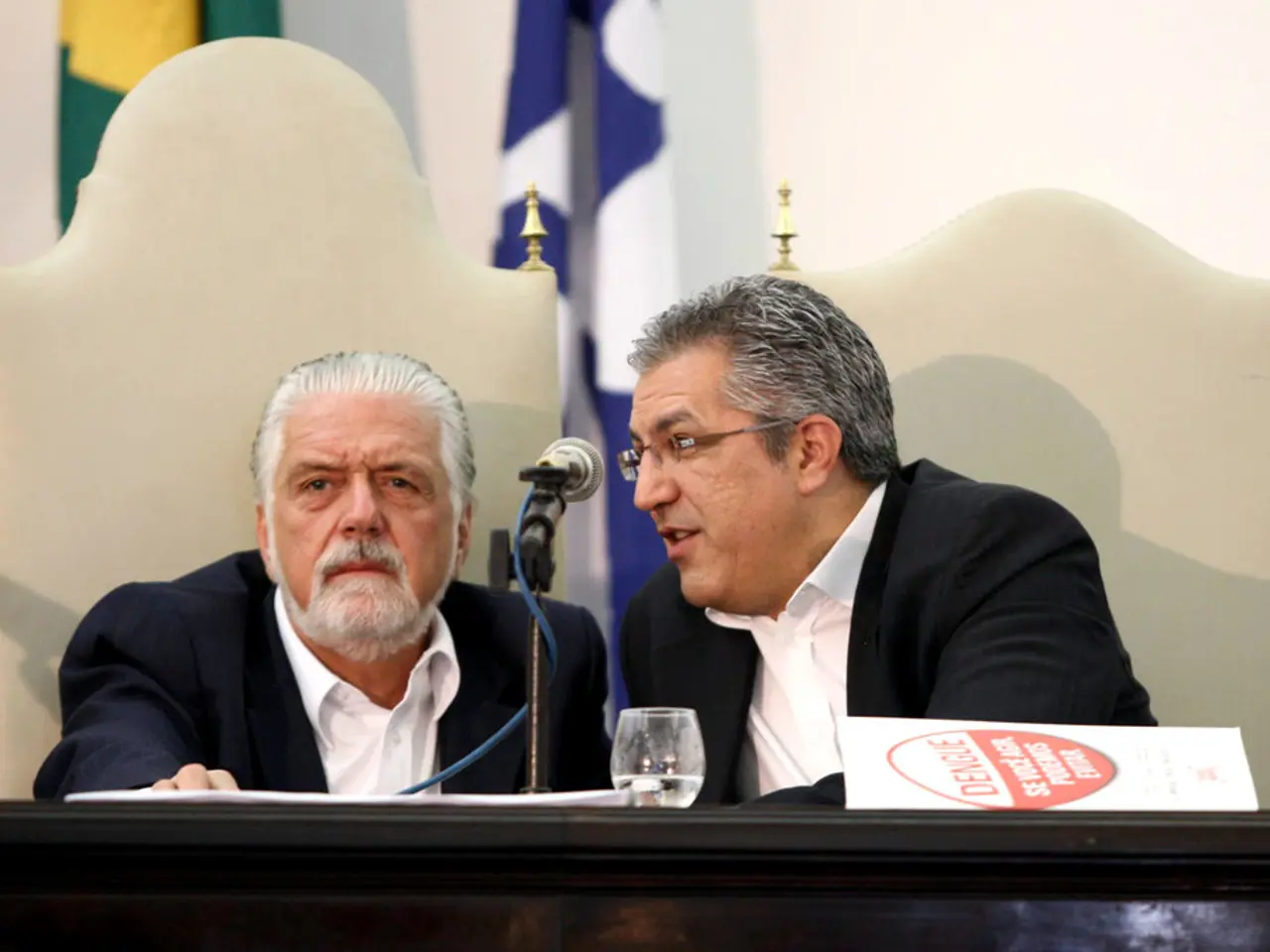Union and SPD decline proposed special session for the election of a constitutional judge in the Bundestag
In a surprising turn of events, the election of three new judges for the Federal Constitutional Court in Germany has been postponed until the fall, due to a dispute within the ruling coalition over the nomination of a candidate by the SPD [1][4].
The centre-right Union (CDU/CSU) and the Social Democrats (SPD) have rejected a special session of the Bundestag for electing new constitutional judges, primarily due to the ongoing controversy surrounding the SPD's candidate, Frauke Brosius-Gersdorf [1]. The CDU/CSU has expressed opposition to her candidacy, citing allegations of plagiarism in her doctoral thesis [2].
The SPD, however, has stood firm behind Brosius-Gersdorf, claiming that the plagiarism allegations have been misrepresented and refusing to compromise on their candidate [2]. This disagreement has intensified tensions within the coalition, with Chancellor Friedrich Merz acknowledging the situation as unpleasant and a sign of differing opinions at critical moments rather than a government crisis [1].
The Greens had initially called for a renewed election attempt in the Bundestag this week, but the coalition factions have decided to take time to prepare for a new attempt, further complicating the process of electing new constitutional judges [1][2]. The Left also rejected the idea of a special session during the summer break [2].
The Federal Constitutional Court, currently fully operational, has been left without three judges due to this impasse. The events of the past few days have marked an unprecedented disruption in the procedure for appointing judges to the Federal Constitutional Court in 76 years [1].
Despite the division, all coalition factions share the goal of quickly filling the three judge positions in the Federal Constitutional Court. The parties appear to be seeking a way to resolve the dispute while avoiding further disruption until a consensus can be reached later in the year [1][2][4].
As the situation unfolds, the coalition factions plan to engage in further discussions with the Greens after preparing for a new attempt at elections in the plenary. The hope is that these talks will lead to a resolution and the election of the new judges in the fall.
[1] German Press Agency, various articles [2] Deutsche Welle, various articles [3] Tagesspiegel, various articles [4] Spiegel Online, various articles
The ongoing disagreement within the ruling coalition, specifically over the SPD's candidate for the Federal Constitutional Court, Frauke Brosius-Gersdorf, has led to a postponement of the election of new judges until the fall. This dispute, centered around allegations of plagiarism in Brosius-Gersdorf's doctoral thesis, has intensified tensions and highlighted variations in opinions, particularly between the CDU/CSU and SPD, within the coalition. The policy-and-legislation aspect of this situation is a significant part of the general news and politics, affecting the community policy and employment policy, given the scrutiny of judicial appointments.






